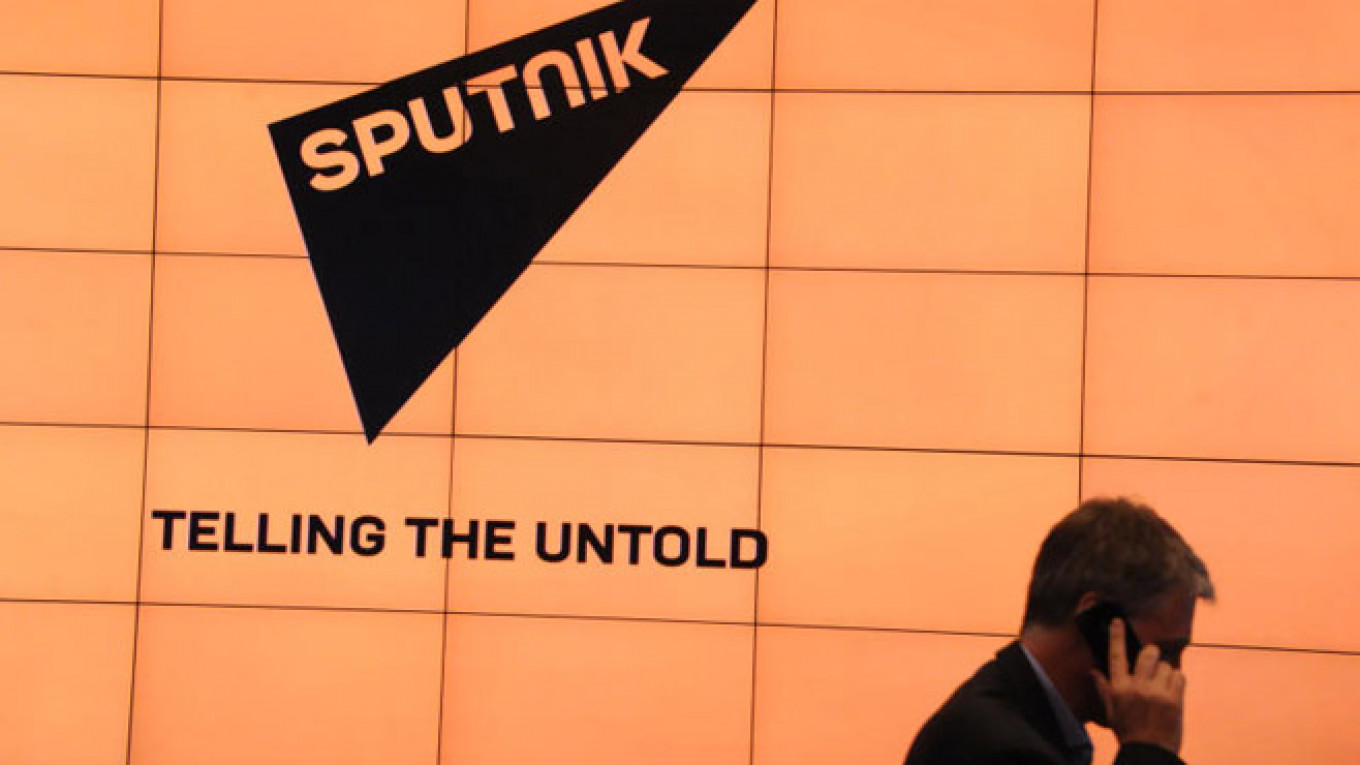When I visited Italy six years ago, the country boasted six Russian-language newspapers. Now only one remains: La Nostra Gazzetta. In fact, that newspaper went out of business a year ago as well, promising readers at the time to refund their subscription fees.
And then, unexpectedly, early this year it experienced a rebirth and now appears with 40 full-color pages every week. It is sold in every newspaper kiosk in the country and even has a gorgeous website.
It is not difficult to guess who breathed new life into it. This is not the same newspaper we knew. Now it is an unabashed mouthpiece for Kremlin propaganda. I don't know if anyone in Italy even reads the thing, but I can imagine a Kremlin official holding a red folder containing an overview of the foreign press, and on top lies the following:
"The influential Italian La Nostra Gazzetta cites the opinion of former Italian Senator Luigi Marino: 'The Ukrainian crisis has once again underscored that NATO, as it functions today — and all the more if other Eastern European countries join it — is a dangerous factor of instability on the continent and its activities are detrimental to EU-Russian relations. Europe cannot manage without the Russian market, and its excessive obsequiousness before the U.S. only harms itself.'"
That is a real excerpt from a recent issue — I'm not making it up. A newspaper that earlier told emigrants from Russia, Ukraine and other former Soviet republics about life in Italy now gives them a very different message. Its hapless readers now learn what a wonderful leader President Vladimir Putin is and how Europe itself has the most to lose from the sanctions it imposed on Russia for its actions in Ukraine.
Here is another excerpt from the newspaper. Of course, an Italian surname follows the article.
"Ukraine has always been a Russian province and is even the place that marked the founding of Russia — Rus. Ukraine was arbitrarily created by the Soviet Union without consideration for the fact that this territory is inhabited by very different groups of people. … It is an artificially created entity. … The symbol of the struggle against Ukrainian fascism and German Nazism is the St. George ribbon that honors the memory of the great sacrifice the Russian people made in saving their homeland.''
''Today, it is worn by the soldiers of Novorossia who fight against the junta in Kiev that came to power in a bloody coup with the support of the United States. … That is why the Republic of Novorossia is an example for others and the start of something new, something that will change the world."
Sadly, a number of Russian-language newspapers around the world have undergone the same metamorphosis. This is just the tip of the iceberg aimed at the so-called "Russian world" that the Kremlin is using as a breeding ground for the large-scale expansion of its influence. The main body of the iceberg is underwater and its true dimensions remain unknown, but the fact that this Kremlin-sponsored media blitz is not just in Russian — but in all the major world languages — gives an indication of its size.
The annual budget of Russia Today, the state-funded television channel and website designed to broadcast a positive image of Russia around the world, currently stands at $300 million and is expected to increase by almost 50 percent next year. The channel has started adding German and French to its standard English-language broadcasts.
What's more, Russia has just announced the start of an enormous media project called Sputnik that will include a new information agency, radio stations in 34 countries around the world and a budget that already measures in the billions of dollars.
The world could simply overlook this tremendous waste of Russian taxpayers' money were it not for one thing: The Kremlin's goal in creating a presence on the global media market is to spread propaganda based solely on lies.
Andrei Malgin is a journalist, literary critic and blogger.
A Message from The Moscow Times:
Dear readers,
We are facing unprecedented challenges. Russia's Prosecutor General's Office has designated The Moscow Times as an "undesirable" organization, criminalizing our work and putting our staff at risk of prosecution. This follows our earlier unjust labeling as a "foreign agent."
These actions are direct attempts to silence independent journalism in Russia. The authorities claim our work "discredits the decisions of the Russian leadership." We see things differently: we strive to provide accurate, unbiased reporting on Russia.
We, the journalists of The Moscow Times, refuse to be silenced. But to continue our work, we need your help.
Your support, no matter how small, makes a world of difference. If you can, please support us monthly starting from just $2. It's quick to set up, and every contribution makes a significant impact.
By supporting The Moscow Times, you're defending open, independent journalism in the face of repression. Thank you for standing with us.
Remind me later.






